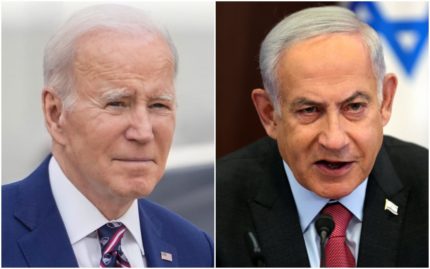President Joe Biden has expressed significant concerns over the recent assassination of Hamas political leader Ismail Haniyeh, which he believes has jeopardized ongoing cease-fire negotiations. In a heated discussion with Prime Minister Benjamin Netanyahu of Israel, Biden argued that the timing and location of the assassination—carried out in Tehran—could undermine efforts to halt hostilities and release hostages. According to a U.S. official, Biden emphasized that the operation’s timing was particularly detrimental as it came at a crucial juncture when the Americans were optimistic about reaching a resolution.
Netanyahu, however, strongly rejected the notion that Israel was impeding the cease-fire process. A senior Israeli government official stated that Netanyahu insisted the assassination would, in the long run, expedite the agreement by increasing pressure on Hamas. He acknowledged that while the death of Haniyeh, a key negotiator, might delay talks temporarily, it would ultimately force Hamas into a more compromising position.
Secretive Operation and Diplomatic Strain
The covert nature of the operation further strained U.S.-Israel relations. Israeli officials admitted that they did not inform the Americans of their plans to kill Haniyeh, despite Netanyahu’s recent visit to the White House. The Israeli side argued that pre-informing the U.S. could have compromised the operation. American officials, though surprised, have refrained from criticizing the lack of communication.
President Biden, addressing reporters at Joint Base Andrews, underscored his concerns about the volatile Middle Eastern situation. He described his conversation with Netanyahu as “very direct” and reiterated the urgency for Israel to act on the existing framework for a cease-fire. Biden’s remarks hinted at his frustration with the recent developments, suggesting that the assassination had complicated the delicate negotiation process.
Biden Administration and Israel Counter Potential Iranian Retaliation
As tensions rise between the United States and Iran, President Joe Biden and Israeli Prime Minister Benjamin Netanyahu are coordinating closely to prevent a potential Iranian attack in response to the killing of Hamas leader Ismail Haniyeh. President Biden has deployed additional warships and aircraft to the region, and U.S. military officials are working with their Israeli counterparts to develop strategies to counter any Iranian aggression. This collaborative effort mirrors their joint operation in April, which successfully intercepted nearly 300 missiles and drones launched by Iran towards Israel.
Despite their cooperation on security matters, the diplomatic relationship between Biden and Netanyahu remains strained, particularly over the ongoing cease-fire talks with Hamas. The disagreement over the terms of the cease-fire has exacerbated tensions, with both leaders facing internal and external pressures to achieve a resolution.
Cease-fire Talks Face Internal and External Challenges
Israel’s Channel 12 reported that Prime Minister Netanyahu clashed with his security chiefs, who accused him of altering the terms of the cease-fire proposal, complicating efforts to reach an agreement. Netanyahu’s office denied these accusations, but the friction underscores the challenges in achieving a lasting cease-fire. Netanyahu has ordered his negotiators to return to Cairo to continue the talks, with American officials emphasizing their commitment to pressing forward.
Disagreements between American and Israeli officials over the latest draft proposal have been reportedly resolved, but significant points of contention remain. The first phase of the three-stage cease-fire plan involves Hamas releasing 33 hostages and Israel releasing a number of Palestinian prisoners during a 42-day pause in military operations. However, Netanyahu insists that the remains of deceased hostages should not be included in the total number to be returned, further complicating negotiations.
Persistent Disputes and Geopolitical Tensions
Israel is determined to maintain control over the Philadelphi corridor along Gaza’s border with Egypt to prevent the smuggling of weapons and militants. Additionally, Israel seeks to limit the movement of Hamas fighters within Gaza, proposing measures such as checkpoints. While Israeli forces would withdraw to the borders of Gaza under the cease-fire plan, they intend to retain a presence in Rafah, a major city in southern Gaza.
The Israeli government also wants to ensure that if progress toward a permanent resolution stalls, they can resume military operations. This stance highlights the deep mistrust between the parties, with Israel wary of Hamas extending negotiations without genuine intentions of reaching a final agreement.
The American pressure on Netanyahu to finalize a deal has raised concerns within Israel, with some officials fearing that it may embolden Hamas. Despite these pressures, Biden administration officials have rejected the notion that the U.S. does not fully support Israel. The assassination of Hezbollah commander in Lebanon and Haniyeh in Tehran shortly after high-level talks between Biden and Netanyahu has further complicated the situation, casting doubt on Netanyahu’s commitment to the cease-fire process.
In a recent phone call, President Biden urged Prime Minister Netanyahu to finalize the cease-fire agreement, expressing frustration with the ongoing delays. The situation remains fluid, with significant geopolitical implications for both the U.S. and Israel as they navigate these complex negotiations














